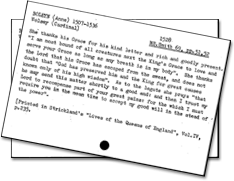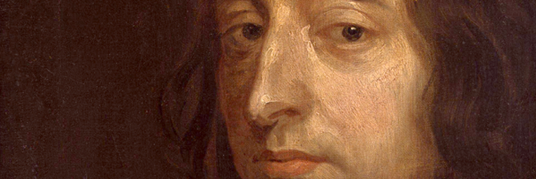Letters in Focus: Breaking the Ice
Tags: Bodleian Resources, History of Scholarship, Letters in Focus, Networks, Oxford, Union Catalogue, Weather

As we thaw out from the February cold snap, for our inaugural Selected Record I thought we should be seasonal and start with our own variant of Old Weather. Using the ‘content’ field in basic search, I entered ‘frost’. My trawl brought up a record for a letter from one John Bennett to the antiquary and diarist Thomas Hearne (1678-1735), an EMLO stalwart responsible for 5,180 records in the catalogue. Bennett, I discovered from thirteen other abstracts in the catalogue, is the son of Sir John Bennett, and in a letter of 14 June 1708 he requests letters to be enclosed ‘to my father Sr. John Bennett, Serjeant att Law, Member of Parliament att his house in Essex Buildings in y e Strand, and then they’l be frank’t at y e Posthouse . . . ’; a quick check in the History of Parliament Online confirms this address. Presumably Bennett junior and Hearne knew each other from Oxford (a quick look in the Alumni Oxonienses confirms they were both at St Edmund Hall). The January in which Bennett wrote to his college friend saw a ‘great frost’ descend across Europe, and this is what he refers to with his tale of snow obstructing streets and unfortunate children meeting their ends in the freezing waters of the Thames. Apparently, the sustained chill was caused by decreased sun spot activity during the Maunder Minimum, which led to the coldest winter for 500 years.
 Alongside the harsh winter, Bennett also mentions a variety of people, places, events, and publications, and we are now in the process of capturing these references systematically across all cards using our catalogue’s powerful online editorial interface, EMLO Edit. The Duke of Marlborough, John Churchill – at the head of his army in the Spanish Netherlands over the winter of 1708/9 and midway between the battles of Oudenaarde and Malplaquet – is mentioned en passant, before Bennett turns his attention to more local matters. He speaks of David Gregory (1659-1708), Savilian professor of astronomy at Oxford from 1691 who had died three months previously, and makes an oblique reference to his successor (a quick search on Wikipedia reveals this to be John Caswell, who held office until his death in 1712). A new professor of poetry is mentioned, and he turns out to be another EMLO correspondent, Joseph Trapp (1679-1747) (the first postholder), and Bennett informs us that Henry Sacheverell (1674-1724) was in London during the cold spell and due to preach at St Paul’s. References to publications by Johan Ernest Grabe (1666-1711), the Königsberg-born divine who settled in Oxford and became a chaplain at Christ Church, and by our very own John Selden (1584-1654) are brought into the letter and, almost as an after-thought, Livy, Tully, and Homer are thrown in. This fascinating network of contexts and connections emerge from a single query regarding inclement weather.
Alongside the harsh winter, Bennett also mentions a variety of people, places, events, and publications, and we are now in the process of capturing these references systematically across all cards using our catalogue’s powerful online editorial interface, EMLO Edit. The Duke of Marlborough, John Churchill – at the head of his army in the Spanish Netherlands over the winter of 1708/9 and midway between the battles of Oudenaarde and Malplaquet – is mentioned en passant, before Bennett turns his attention to more local matters. He speaks of David Gregory (1659-1708), Savilian professor of astronomy at Oxford from 1691 who had died three months previously, and makes an oblique reference to his successor (a quick search on Wikipedia reveals this to be John Caswell, who held office until his death in 1712). A new professor of poetry is mentioned, and he turns out to be another EMLO correspondent, Joseph Trapp (1679-1747) (the first postholder), and Bennett informs us that Henry Sacheverell (1674-1724) was in London during the cold spell and due to preach at St Paul’s. References to publications by Johan Ernest Grabe (1666-1711), the Königsberg-born divine who settled in Oxford and became a chaplain at Christ Church, and by our very own John Selden (1584-1654) are brought into the letter and, almost as an after-thought, Livy, Tully, and Homer are thrown in. This fascinating network of contexts and connections emerge from a single query regarding inclement weather.
Letters in Focus with Miranda Lewis
Miranda is editing metadata from the Bodleian card catalogue of correspondence for our union catalogue, Early Modern Letters Online. On a regular basis, she brings us hand-picked and contextualised records.



 Join
Join 